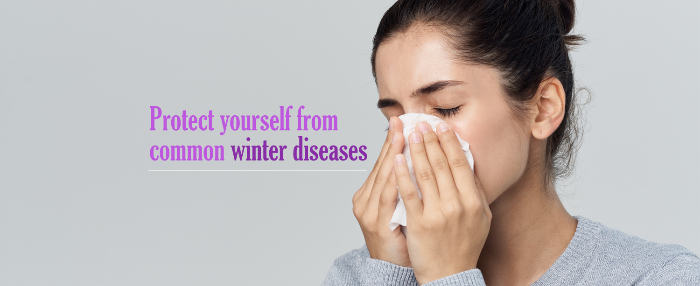
Enjoying the winter chills as you sip your warm cup of masala chai? While the festive season brings a smile to many faces and gives you a chance to adorn your favourite winter jacket, it may also lead to health complications for some. People tend to get sick with changing seasons as the shift in temperature causes viruses to flourish and spread diseases. This season makes you feel sluggish and lethargic and also lowers your immunity. If you are feeling under the weather, or suffer from symptoms of wheezing or high fever do not delay in seeking medical attention.
Common Winter Diseases
Let’s take a look at some of the most common winter ailments. Take the required precautions to help prevent them:
Winter Health Precautions
The cold weather and shorter days during the winter can make you lose the motivation to exercise and stay healthy and fit. This could lead to a weak immune system posing a greater risk of contracting the disease. Here are some precautions to stay healthy and safe this winter:
Take these precautions, stay active and eat seasonal fruits and vegetables to stay healthy this winter. It is important to seek timely medical care to manage winter ailments and lead a healthy life.
Copyright 2026 Norvik Hospital Limited. Powered by Norvik Hospital